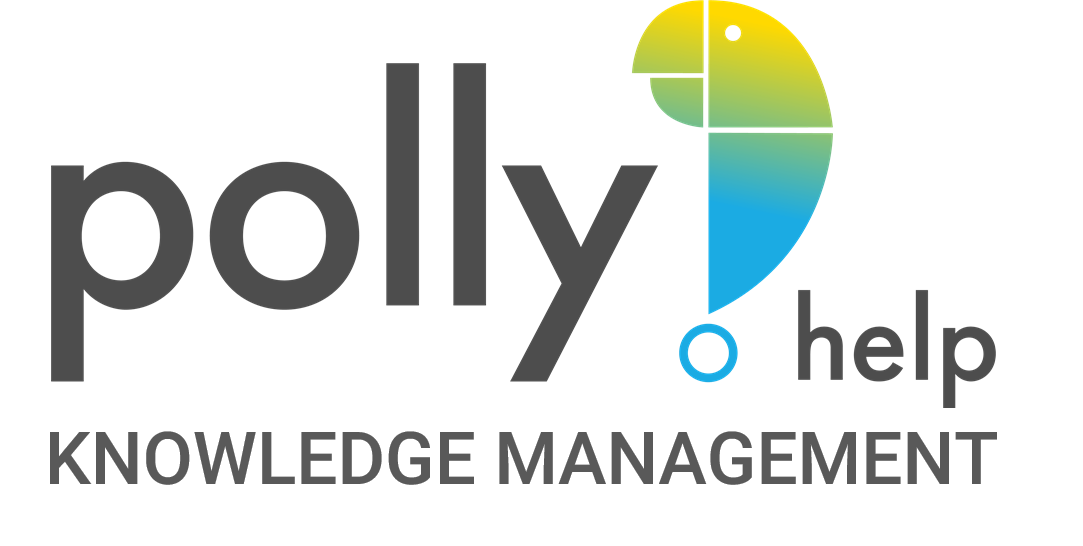In the unfolding digital age, knowledge management stands as a crucial force for refining IT management strategies. By managing organizational knowledge, companies move forward, adeptly handling vast data arrays. Recognizing different types of knowledge is not only about skill but also about cultivating an innovative, knowledge-sharing ecosystem. This represents a new frontier for IT professionals, empowering them to draw on shared insights and spark significant change.
Key Takeaways
- Realizing the potential of knowledge management is vital for informed decision-making in IT.
- Discerning between different types of knowledge can enhance strategic organizational planning.
- Effective IT management strategies hinge on a robust knowledge sharing infrastructure.
- Organizational knowledge is a dynamic asset that requires continuous cultivation and application.
- Knowledge sharing practices are the backbone of collaborative and innovative IT cultures.
Understanding the Foundations of Knowledge Management
In our era, where information saturates every aspect of life, mastering knowledge management is essential. It goes beyond organizing data. It’s a complex blend of strategy and execution, key for staying competitive. Let’s delve into this critical business area to understand its significance, role, and the hurdles of its absence.
Defining Knowledge Management in the Digital Era
The digital age has transformed our approach to knowledge. Within the vast sea of digital data, knowledge management acts as a guiding light. It leads companies through the clutter to strategic clarity. This process involves acquiring, evaluating, and applying knowledge, driving organizations toward their objectives.
The Strategic Importance of Knowledge Management
The critical role of strategic knowledge management cannot be overstated. It’s more than an admin task; it’s a strategic foundation vital for customer satisfaction, innovation, and operational prowess. It unites an organization’s collective intelligence, sharpening its competitive edge and enhancing agile decision-making.
Challenges Faced Without Knowledge Management
Lacking a solid foundation in knowledge management, businesses encounter numerous obstacles. Issues include scattered data, slow customer service, and hindered innovation. These challenges can severely impact a company’s strategic goals, highlighting the indispensable need for effective knowledge management systems.
The Role of Data in Modern Knowledge Management
In the current fast-paced business scene, managing the huge amount of data produced is both a chance and a tough task for knowledge management. The key to tackling this challenge lies in using data to power data-driven decision-making. This approach is crucial for nurturing organizational intelligence. To effectively manage knowledge, seeing data as a vital resource that can spark innovation and promote ongoing growth is essential.
Data acts as the navigational tool aiding companies in traversing the complex market environment. With diligent analysis and integration of each data piece into the knowledge management system, companies enhance their competitive stance. Wisely applied, data can uncover hidden patterns, foresee future trends, and craft strategies that align with market demands. Knowledge transforms into a dynamic force, growing more robust with each data analysis, laying the groundwork for a resilient and intelligent enterprise.
- Analyzed data reveals trends that drive strategic planning
- Seamless integration of data sources enriches the knowledge base
- Real-time data analysis supports immediate and accurate decision-making
To wrap up, the intricate interplay between data, knowledge management, and organizational intelligence aims to boost operational effectiveness and the caliber of decisions. The astute employment of data positions organizations for long-term competitiveness, highlighting its role as the foundation of data-driven decision-making today.
The Five Cornerstones of Knowledge Management
Effective knowledge management relies on several key components. These components outline how organizations handle, keep, and share knowledge. Understanding different knowledge types lets businesses harness all their intellectual assets effectively.
Explicit Knowledge: The Bedrock of Information Sharing
Explicit knowledge consists of information that’s easily shared and documented. It forms an organization’s factual base, with data, manuals, and procedures central to knowledge exchange. Examples include sales reports and software guides, vital for informed decisions.
Implicit Knowledge: Bridging Theory and Practice
Implicit knowledge emerges from applying what’s explicitly known. For example, using data analytics to spot customer trends shapes marketing strategies. It turns theory into practice, filling the gap between knowledge and action.
Tacit Knowledge: The Untapped Resource Within
Tacit knowledge is gathered from personal experience and insights. It’s hard to document but includes crucial skills and know-how gained over time. Although often underutilized, it’s a significant asset in a company’s workforce.
Declarative Knowledge: The What Without the How
Declarative knowledge is about knowing facts, the ‘what’ of information. It’s understanding truths or data without necessarily applying them. This knowledge covers details like product features or company history.
Procedural Knowledge: Step-by-Step Insight
Procedural knowledge is about the ‘how’—the steps to execute specific tasks. It directs staff through methods and rules, promoting consistency and efficiency. It includes processes such as emergency responses or customer service practices.
Knowledge Management Types of Knowledge
In organizational knowledge management, recognizing the variety of knowledge within a company is vital. These classifications do more than differentiate; they reveal how knowledge can foster success and innovation. Let’s delve into these types and their significance in a corporate setting.
Distinguishing between tacit, explicit, and other knowledge types is essential. It allows IT managers to enhance knowledge sharing and foster sustainable growth. Here, we examine the impact of each type:
- Explicit Knowledge: Easily codified and shared in formal language. It includes databases and manuals.
- Tacit Knowledge: Comprises unarticulated insights, often gained through experience.
- Implicit Knowledge: Evolves from explicit knowledge, refining methodologies over time.
- Declarative Knowledge: It’s about the “what”—the facts and information an organization holds.
- Procedural Knowledge: Concerns the “how”—the processes for achieving tasks within an entity.
Now, let’s explore how each classification bolsters organizational effectiveness:
| Knowledge Type | Application in Organizational Knowledge Management | Impact on Operational Efficiency |
|---|---|---|
| Explicit | Creation of training materials, codifying processes. | Facilitates smooth onboarding, consistent task execution. |
| Tacit | Derived from mentorship, storytelling. | Boosts innovative problem-solving, preserves wisdom. |
| Implicit | Adopted in best practices, improvement efforts. | Enhances workflows, translates theory to practice. |
| Declarative | Sets company policies, educational resources. | Keeps a baseline knowledge for activities. |
| Procedural | Guides organizational processes. | Guarantees consistency, quality in outputs. |
Understanding these knowledge types and their synergy in a business is key. It strikes a balance between safeguarding valuable insights and building a comprehensive knowledge base. This balance is crucial for successful knowledge management, fostering a culture of continuous learning and innovation.
Strategizing Knowledge Capture and Dissemination
The landscape of knowledge management is rapidly changing. Organizations need a dynamic strategy for capturing and sharing knowledge. Effective knowledge transfer strategies are crucial for maintaining a competitive advantage. They also help create a culture of collaboration and intelligence sharing.
Effective Transfer of Organizational Knowledge
To ensure the successful transfer of knowledge, organizations must streamline information with clarity. They need to develop systems for easy access to stored knowledge. The journey from creating to applying knowledge involves several key steps:
- Crafting and gathering knowledge pertinent to organizational needs.
- Organizing the knowledge to promote ease of navigation and retrieval.
- Implementing mechanisms for sharing knowledge across teams and departments.
- Applying the knowledge in decision-making and day-to-day operations.
- Maintaining the knowledge base by regular updates and revisions.
Creating a Congruent Knowledge-Sharing Culture
The culture within an organization plays a pivotal role in knowledge management. A coherent ecosystem for knowledge sharing allows free information and experience flow. This significantly improves the process of knowledge dissemination. Below is a table highlighting best practices for fostering a knowledge-sharing culture:
| Element | Description | Benefits |
|---|---|---|
| Open Communication | Encourages transparent and frequent knowledge sharing among employees. | Boosts trust and serves as a foundation for collaborative innovation. |
| Recognition Systems | Acknowledges and rewards valuable knowledge contributions. | Motivates continual knowledge sharing and capture. |
| Knowledge Ambassadors | Identifies and trains select individuals to champion knowledge initiatives. | Accelerates adoption of knowledge practices and mentors peers. |
| Learning Opportunities | Provides training and professional development focused on knowledge management. | Equips employees with the tools and skills to effectively manage and disseminate knowledge. |
Organizations can overcome the hurdles of information fragmentation through strategic actions. By emphasizing effective knowledge transfer and dissemination, they can unlock their intellectual potential. This is essential for sustaining an informed workforce and securing a competitive stance.
Maximizing the Value of Knowledge Management Systems
In today’s fast-paced business environment, knowledge management systems have become crucial. They create a learning ecosystem and improve proficiency. The core of these systems is the knowledge bases. They act as repositories of all organizational knowledge. This gives employees quick access to crucial information. This aids in agile decision-making and boosts performance.
The rise of AI-powered knowledge management has significantly improved these systems. By incorporating AI, these systems manage large data volumes accurately. They also predict and personalize the dissemination of information. This way, they meet the specific needs of every employee.
Implementing these systems brings numerous benefits:
- Enhanced productivity by reducing the time spent searching for information
- Achieving uniformity in responses and actions, thanks to a centralized truth source
- Increased employee engagement and satisfaction by providing necessary tools and resources
The effectiveness of a knowledge management system rests on its relevancy and updates. As businesses grow, their knowledge bases must evolve. Here, AI-powered systems show their true value. They use machine learning to spot trends, highlight outdated content, and recommend updates.
| Feature | Benefit |
|---|---|
| Centralized Knowledge Base | Ensures consistent access to standardized information |
| AI-Powered Search and Recommendations | Delivers personalized content, streamlining workflows |
| Automated Content Updates | Maintains the accuracy and relevancy of information |
Integrating knowledge management systems into a company’s core promotes a knowledge-sharing culture. This not only helps retain knowledge but also prepares new employees to be effective quickly. It lays a strong foundation for their journey in the company.
In conclusion, knowledge management systems, powered by knowledge bases and AI, are key for businesses to thrive in the digital era. These tools help companies transition from collecting data to applying actionable intelligence. This drives growth and a competitive edge.
Pitfalls to Avoid in Knowledge Management Implementation
When embarking on knowledge management initiatives, organizations need to watch for pitfalls that can hinder progress. Common barriers include content creation gaps, inefficient data use, and the slow integration of AI technologies. These can derail the effectiveness of knowledge management efforts. Addressing these areas is vital to ensure the success and scalability of these initiatives.
Gaps in Knowledge Content Creation
Content creation is pivotal in knowledge management. As businesses grow, they must actively work to bridge any gaps in content creation. This ensures information stays up-to-date and relevant. Conducting regular reviews and updates of the knowledge base is key. It maintains the accuracy and utility of content for both staff and customers.
Leveraging Data to Understand Customer Needs
Using data to predict customer needs is critical in shaping effective knowledge management. Deep data analysis enables organizations to tailor experiences and enhance service delivery. This fosters stronger customer bonds and boosts satisfaction.
Embracing AI in Knowledge Management
The rise of AI offers exciting prospects for enhancing knowledge management. Companies that incorporate AI can streamline content updates, unearth patterns in knowledge use, and gain insights for ongoing improvement. This propels continuous enhancement in how knowledge is shared.
An overview of common challenges and possible solutions highlights the pitfalls to be wary of:
| Pitfall | Consequences | Remedies |
|---|---|---|
| Content Creation Gaps | Outdated or incomplete knowledge leading to inefficiencies | Regular review cycles and updates to knowledge base |
| Poor Data Utilization | Misalignment with customer expectations and needs | Incorporation of data analytics to steer content development |
| Resistance to AI Integration | Lack of knowledge management scalability and adaptability | Strategic adoption of AI tools for knowledge automation and insights |
By avoiding these pitfalls, organizations can foster a culture of continuous content renewal, smart data use, and AI integration. This ensures their knowledge management initiatives are not just successful, but also adaptable and scalable to meet evolving operational demands.
Ways to Keep Your Knowledge Management Relevant
To ensure that knowledge management systems stay aligned with your business’s growth, constant knowledge updating is crucial. This process demands a dynamic strategy. It should involve periodic checks of your material and integrate new technologies. These technologies help maintain the relevance and reliability of your data.
Utilizing self-service resources is an excellent strategy for updating knowledge. These tools enable users to resolve queries on their own, lightening the load on support staff. Real-time content verification becomes smoother as a result. Also, integrating AI-driven devices can boost content management efficiency. Such devices pinpoint obsolete information and suggest necessary revisions. This ensures your knowledge base remains not only updated but also meaningful and accessible to users.
- Monitor and review content regularly to prevent outdated information.
- Implement AI tools that identify and suggest necessary updates.
- Engage users with self-service options to ensure resource efficacy.
Adopting these strategies significantly uplifts your knowledge management quality. Investing in the timeliness of your information. It not only maintains the accuracy of shared knowledge but also reinforces your organization’s image as reliable and responsive.
| Action | Tools | Outcome |
|---|---|---|
| Content Audit | AI Analysis | Identification of Outdated Material |
| Update Suggestions | Content Management Systems | Streamlined Editing Process |
| User Enablement | Self-Service Portals | Reduced Dependency on Support Staff |
Conclusion
In today’s fast-paced corporate sphere, the skillful IT manager knows that mastering different kinds of knowledge is crucial. These include tacit, explicit, and implicit. This expertise is foundational in building a strong and insightful company. With strategic knowledge management, decision-making improves and organizational structures solidify. This allows companies to prosper in the rapidly growing digital information landscape.
At the heart of a thriving business is the creation of a knowledge-driven culture. This culture fosters the continuous sharing of ideas and skills, preparing a powerful workforce. By empowering IT teams with the right tools and methods, organizations can tap into their collective intelligence. This enhances their ability to innovate and stay agile in an evolving digital world.
Ultimately, adopting a holistic approach to knowledge management isn’t just for storing information. It injects an organization with the dynamism needed to stay ahead of change. Businesses equipped with strategies to manage and share knowledge effectively are better positioned. They can resist disruptions, maintain a competitive edge, and secure long-term success and resilience.






